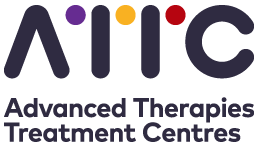
Case Studies
ATMP Clinical Supply Chain Traceability Solution: development and implementation of an electronic traceability (eTraceability) solution to ensure quality and safety for Human Tissues and Cells for Patient Treatment
Author: Amu Wang, Ryan Guest
The Challenge:
Autologous ATMP therapy have a complex end to end supply chain and clinical pathways that are highly regulated by multiple institutions. The complex regulatory framework governing the ATMP logistics from the collection of starting materials (UK Human Tissue Authority (HTA), Good Tissue Practice (GTP), Requirements for Manufacturers of Human Cells, Tissue-Based Products (HCT/Ps)), manufacture (Good Manufacturing Practice(GMP)), and distribution (Good Distribution practice (GDP)), to clinical testing (Good Clinical Practice(GCP), Regulation (EC) No 1394/2007) require clinical phase developers to implement a compliant and cost effective solution for Chain of Identity (COI) and Chain of Custody (COC) tracking and reporting. Using a paper-based system is inefficient, labour intensive, prone to error and in the extreme case result in failure to release of the finished Drug Product (DP) to the patient.
The ability to scale up clinical supply and patient access to these products requires an innovative, cross industry, regulatory compliant and efficient solution. Critical to these solutions is data integrity which requires the system to be designed with the knowledge of key stakeholders in the entire clinical supply chain.
The solution:
With iMATCH support, we were able to bring together subject matter experts (SMEs) within each discipline in our tumour infiltrating lymphocytes (TIL) product clinical supply chain. This enabled us to collectively leverage expertise in each key transaction within the supply chain to define the requirements for a comprehensive and compliant eTraceability solution.
The cross-industry partners within the ATTC consortium involved are cell therapy developers, equipment manufacturers, software developers, logistics solution providers, clinical research professionals, surgical teams, Clinical Research Organisations (CROs), clinicians/physicians and the UK cell and gene catapult.
This resulted in a clear specification of the user requirement for the electronic system enabling us to build the solution with the capability of data capturing and tracking for all of the key stages in the clinical pathway from consent, tissue collection, shipping, manufacturing, product release and infusion into the original patient from which the tumour material was collected.
This solution provided Instil Bio with our own qualified electronic CoI and CoC solution that ensures data integrity and complies with UK Data Protection, EU GDPR, and HIPPA regulation in the US.
The results:
The electronic solution provides a single source of truth for all patients enrolled in our global clinical trials, providing the real-time status of all patients and products.
Wider impact
The cross functional and cross disciplinary interactions have enabled Instil Bio and the ATTCs to understand the challenges of Autologous ATMP delivery.
Using these solutions, the industry will be able to treat more patients efficiently and safely, therefore improving global patient access to a potential life changing therapy.
References:
- Human Tissue Act of 2004
- Human Tissue (Quality and Safety for Human Application) Regulation 2007 (as amended)
- The UK Medicines and Medical Devices Act 2021
- UK Human Medicines Regulations 2012 (as amended)
- UK Data Protection Act 2018
- US 21 CFR 1271 Human Cells, Tissues and Cellular and Tissue-Based Products
- EudraLex Volume 4 – Good Manufacturing Practice (GMP) guidelines
- Part IV – GMP requirements for Advanced Therapy Medicinal Products
- EU Directive 2015/565/EC, certain technical requirements for the coding of the human tissues and cells
- US 21 CFR 312 GMP-Investigational New Drug Application
- US 21 CFR 600 Biologics Products: General
- US 21 CFR Subchapter H – Medical Devices
- US 42 CFR 493 – Laboratory Requirements for Scheduled Services performed in CMS CLIA certified laboratories
- Current Good Tissue Practice (CGTP) and Additional Requirements for Manufacturers of Human Cells, Tissues, and Cellular and Tissue-Based Products (HCT/Ps)
- The International Council for Harmonisation of Technical Requirements for Pharmaceuticals for Human Use (ICH) guideline E8(R1) on general considerations of clinical studies
- EU Directive 2001/83/EC and 2001/82/EC on distribution of medicines in the EU (EU GDP guidelines)